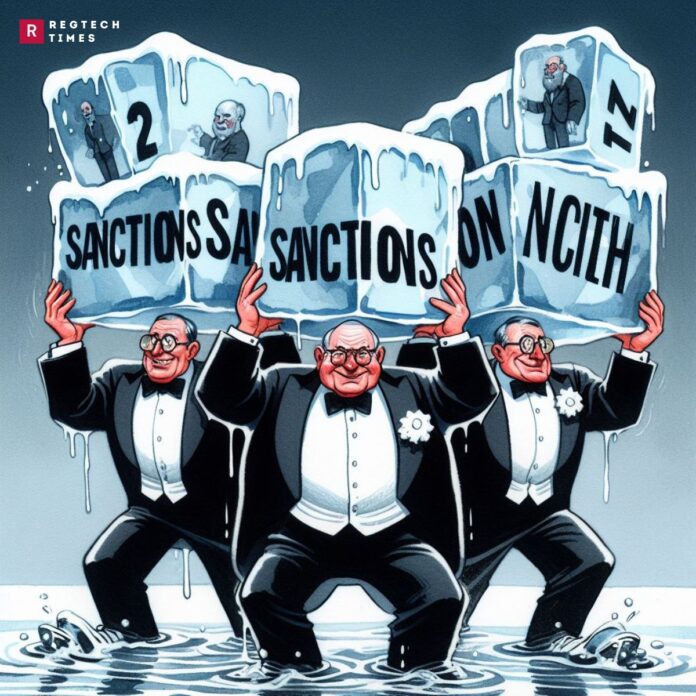The European Union Court of Justice has agreed to take Russian billionaires Mikhail Fridman and Petr Aven off the EU’s sanctions list, a landmark decision that has drawn attention from around the world. This judgment highlights the complicated factors that support the application of sanctions on people, especially in light of the geopolitical scenario that has emerged in the wake of Russia’s war on Ukraine in 2022. The court determined that the justifications for their inclusion were insufficiently supported, highlighting the strong evidence needed to support such actions.
The European Council’s sanctions resulted in the freezing of the assets of Mikhail Fridman and Petr Aven, two well-known Russian businessmen and significant owners of the Alfa Group conglomerate. Targeting persons with purported direct links to the Russian government or those who support its operations against Ukraine, these restrictions were a part of a larger international response to Russia’s invasion.
The General Court did point out, however, that there was insufficient proof that Fridman and Aven backed Russian decision-makers financially or encouraged acts or policies that were harmful to Ukraine. This examination of the evidence and the court’s requirement for a strong case before it may penalize someone represents a turning point in international law and policy, raising concerns about the standards and supporting documentation required to impose such penalties.
It’s important to note that Fridman and Aven filed a separate appeal against the EU’s reimposition of restrictive restrictions in March 2023, even though their placement on the EU sanctions list was revoked for a limited time. The intricacies of penalty policies and the difficulties in striking a balance between legal requirements and geopolitical goals are reflected in this continuing legal dispute.
The world community, which includes the US, has imposed sanctions on these people in addition to the EU’s actions. For example, Fridman and Aven are part of a fresh round of penalties aimed against Russia’s financial elite and organizations by the U.S. Department of the Treasury. These penalties are part of a larger international coalition’s attempt to punish individuals responsible for aiding Russia’s activities against Ukraine.
In addition, these penalties and legal actions have consequences that go beyond the current court cases. They highlight the international response to Russia’s invasion of Ukraine as well as the difficulties in implementing international sanctions in a way that is both proportionate and compliant with the law. The intricate interactions of international diplomacy, legal norms, and the pursuit of responsibility in international relations are shown by the Fridman and Aven case.
The way in which this scenario is developing serves as a reminder of the geopolitical tensions that still surround Russia’s activities in Ukraine and the efforts being made by the international community to resolve these issues. The ruling of the European Union Court of Justice underlines the difficulties in establishing accountability and justice on a global scale and emphasizes the significance of close examination and evidence-based decision-making in the application of sanctions.


